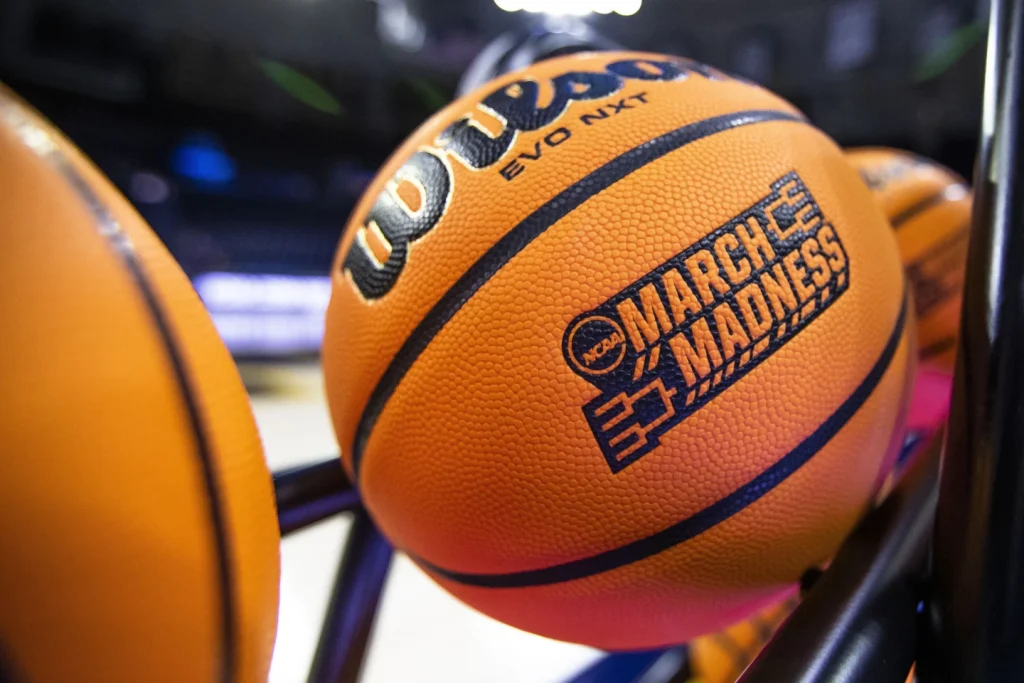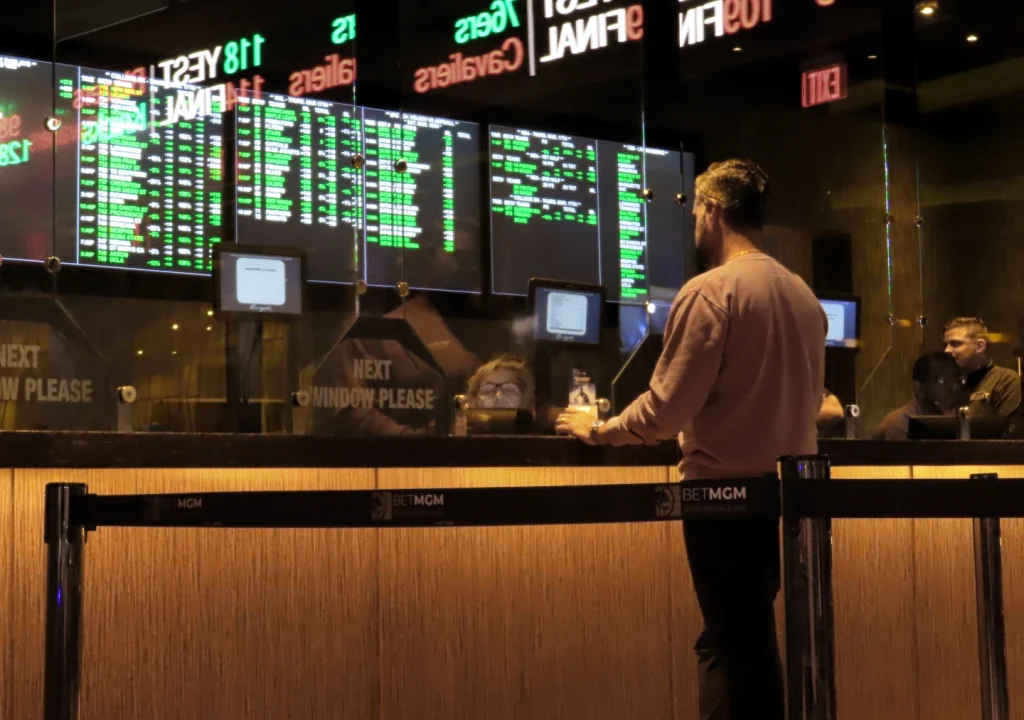The advent of legal sports betting in North Carolina marks a significant shift in the landscape of the NCAA men’s and women’s basketball tournaments, offering residents the opportunity to engage in betting activities through their smartphones and computers for the very first time.
This development underscores a broader trend in the United States, where the number of states permitting legal sports betting has steadily increased over the past six years, particularly in the wake of the U.S.
Supreme Court’s pivotal decision that opened the doors for such expansion following the 2018 college basketball tournaments.
Presently, a total of 38 states along with the District of Columbia have embraced some form of sports betting, with 30 states and the nation’s capital allowing for online wagering—a stark contrast to the previous scenario where Nevada stood as the sole state permitting legal wagering on games.
The regulations governing sports betting vary significantly across states, with some states imposing restrictions on bets related to home-state college teams or individual player performances, while others offer a broader array of betting options encompassing various facets of the game such as points, rebounds, and assists.
Traditionally, fans have engaged in friendly wagers and office pools centered around NCAA tournament brackets; however, the landscape has evolved to incorporate more formalized gambling practices alongside these casual betting traditions.
The burgeoning popularity of sports betting is evidenced by the staggering figures reported by the American Gaming Association, which revealed that the total amount wagered on all sports through legal betting platforms surpassed $121 billion in 2023—a 30% increase from the previous year.
Notably, sports betting operators generated revenue amounting to $11 billion after payout distributions, marking a substantial uptick from the approximately $7.5 billion recorded in the preceding year.
With the NCAA men’s and women’s basketball tournaments serving as a focal point of attention, the American Gaming Association estimates that legal sportsbooks will witness bets amounting to $2.7 billion during this year’s championship events.
David Forman, the Vice President of Research at the American Gaming Association, aptly characterizes March Madness as the pinnacle event for sports betting enthusiasts, underlining the significance of this period for the industry.
As the tournaments kick off, it is imperative to grasp the nuances of sports betting, particularly in light of the expanding legal landscape and the diverse array of betting options available to enthusiasts.
The convergence of technological advancements and evolving regulatory frameworks has paved the way for a new era in sports betting, offering individuals in North Carolina and beyond an unprecedented opportunity to engage with the games in a unique and immersive manner.
In conclusion, the intersection of sports, technology, and regulatory changes has ushered in a new chapter for sports betting enthusiasts, transforming the way in which individuals interact with and experience major sporting events such as the NCAA basketball tournaments.
The evolving dynamics of the sports betting industry underscore a paradigm shift in how fans engage with their favorite teams and players, heralding a future where the thrill of the game is complemented by the excitement of legal wagering activities.

The recent surge in sports betting across several states in the United States has been a notable trend following the University of Connecticut’s victory in the men’s tournament last year.
This phenomenon has seen half a dozen states either launch or expand their sports betting offerings, showcasing a growing acceptance and interest in this form of entertainment and potential revenue generation.
The timeline of events in various states is indicative of the evolving landscape of sports betting legislation and practices.
Nebraska initiated sports betting at casinos in June, albeit without allowing mobile wagers. Kentucky and Maine followed suit in September and November, respectively, aligning their sports betting launches with significant events in the sports calendar.
Florida’s Seminole Tribe made a significant move in December by introducing online sports betting alongside casino wagers, marking a pivotal moment in the state’s gambling industry.
Despite legal challenges, the tribe proceeded with its plans, underscoring the complex legal and regulatory environment surrounding sports betting.
Vermont joined the fray in January by launching online sports betting, further expanding the reach of this burgeoning industry.
North Carolina’s decision to permit statewide online sports wagering in March reflects a growing trend towards broader accessibility and convenience for bettors.
The potential for more states to embrace sports betting is evident in ongoing legislative efforts in Missouri, Alabama, Georgia, Oklahoma, and Minnesota.
The involvement of professional sports teams and major operators like DraftKings and FanDuel underscores the significant economic interests at play in this evolving landscape.
Mississippi’s contemplation of expanding into online betting and the challenges faced by residents in states where sports betting remains illegal highlight the complexities and limitations of current regulations.

The use of technology to enforce betting restrictions, as evidenced by GeoComply Solutions’ data during the Super Bowl weekend, showcases the intricate interplay between innovation, regulation, and consumer behavior in the sports betting market.
As states navigate the legal, economic, and social implications of sports betting, the industry continues to evolve and expand, presenting opportunities and challenges for stakeholders at various levels.
The ongoing developments underscore the need for comprehensive regulatory frameworks, responsible gambling practices, and effective enforcement mechanisms to ensure the integrity and sustainability of sports betting in the United States.

